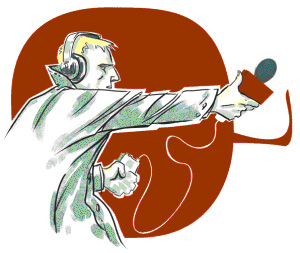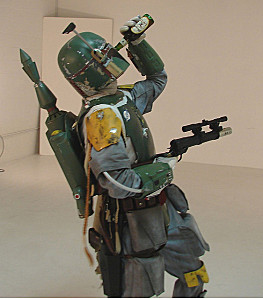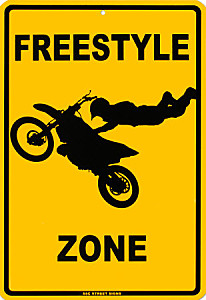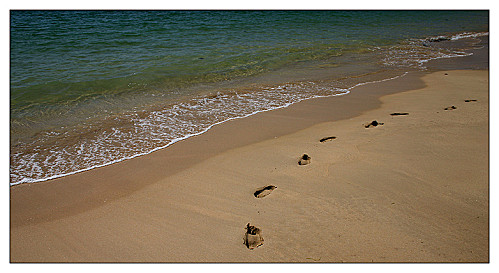Translation: Antoine Valenza
Original article: http://www.electro-gn.com/319-interviewdelaliguedefreeplay
We published last week a message of the Freeplay League, this is the interview which was published in France one week after that.
—
The Freeplay League left no one indifferent with their last week shocking release, and lots of mails and comments on the web account for it. The Electro-GN Team, after they’ve been relaying their message, decided to know more, and our brave-hearted reporters went interviewing the mysterious Freeplay League president: Justin Carroux.
Good day, Justin Carroux.
Good day.
I think a lot of our readers never heard about “Freeplay” before you brought it up in your communiqué. Could you explain to us what exactly it’s all about?
Freeplay means adding or modifying elements of the game universe amidst the confusion that dwells in, in order to create new in-game material and enrich it. Freeplay is widely spread out in larping, but most of the time it’s anecdotical or unconsciously relied upon. In most of the cases, its influence on the game is insignificant, not to say virtually absent. Let’s take the example of a game where the organizers planned a concert, set up for the mood, with no word of the band in people’s character sheets. Players will instinctively freeplay. Discussions will very naturally drift on the upcoming show and each character will naturally improvise to position her/his character. Were they aware of the band, do they like their music, have they been to one of their shows, and so on. Most often this kind of freeplay doesn’t bear consequences for the scenario, but it fuels conversations and enriches inter-character relationships.
Players have different attitudes when it comes to freeplay. Those who reject it as a whole will state in that last example that they never heard of the band, because that detail doesn’t appear on their character sheet. More audacious freeplayers, that think of it as an element of atmosphere without consequences, will give details of shows where they’ve seen the band, speaking of the last album they found was better that the one before, etc… Most of the players exist somewhere in the middle. Some force themselves into freeplaying to be up to follow the conversation while hesitating on the best way to react; others will do it naturally, unconscious they’re being freeplaying. Some will take credit for their freeplay whereas others will find it a sort of guilty delight.
My reflexions on Freeplay date back to a few years, after I played a lot of “Freestyle” games. I hadn’t coin the word “Freeplay” at the time but was interested in the notion for it was rejected -wrongly, in my opinion- by several Larp theoricists and I thought important it takes back its status. I wrote in 2008 a game entitled: “The Diabolic Machine” (La Machine Diabolique, ndt) the association eXperience helped me organizing, which objective it was to push the players into freeplaying while the game wasn’t presented as such. However that was hard to raise concern in a wide audience with this larp, and I found myself fed up with discourses aiming at curbing entirely player’s control over the game development – so I felt like having this rant.
You speak of jeopardizing all the same in that release – we’re far from the kind of freeplay you just elaborated!
Actually jeopardizing is nothing but an excess of freeplay, their nature are identical. From the most banale freeplay to the extreme instance, the action is the same: you add or modify elements of the game universe on your own. The real difference is in the intention; no one’s knowingly jeopardizing a game thinking it will improve it, contrary to other occurences of freeplay, such as creating an interesting game scene or modifying aspects of a character to easy its interpretation.
In that case where’s the limit? Is it not better to prevent any risks by banishing freeplay?
The polemical thing with freeplay is that its edge is blurred, and differs for each of us. It will depend on the accuracy brought by the organizers to the game universe, of the game tone, of the way the scenario evolves, the players we play with, and other external elements, but mostly of our own capacity to size up a situation. Any player who feels like freeplaying must ask her/himself the question of these boundaries, and while the answer will be self-evident in some cases, they might feel doubtful about how far to go. And of course a freeplayer can be wrong, no one’s flawless! Yet I think taking risks is an integrant part of what makes a Larp. An organizer is permanently measuring the risks inherent to a game when he writes it and sets it up, and a player is absolutely capable of doing the same.
Let’s fancy a Star Wars themed larp – you’re a boastful headhunter, you think of yourself as the best. You’re quietly having a drink at the Cantina when an other player shows up boasting loudly about the primes s/he snatched back, giving abundant details on every and each of her/his stories, dating them, whereas yourself have nothing precise to tell on that topic. How to adapt? To leave him alone would be confronting your character’s inner logic, but if you mimic him while telling tales of your own, you’re well on the path of freeplay: it is clear you might be mistaken, creating some elements that won’t match up the other character’s information, so what ? You would waste a scene that wouldn’t have taken place anyway if you’d stayed screwed to your chair contemplating the bottom of your glass. Calling out for people to invade a game with armies of zombies is no more disproportionnate than to deny freeplay as a whole and what it can bring to the game. To ruin a game intentionnaly shows a lack of respect towards the organizer, but systematically banishing all sort of freeplay shows a lack of respect towards the player.
Some organizers refuse this risk-taking, arguing that players don’t have a global view of the game. That’s absolutely true, but in a lot of cases, the organizer doesn’t have it either as the game evolved a lot and s/he has no control over what’s happening (even if s/he did at the very start of the game, and that’s not often the case). The merit goes to these organizers for their clear statement on what they’re expecting from the players, but most often it’s not the case, and the authorized Freeplay cursor setting is therefore implicitly left for the players to appreciate.
Do you advocate for communication to players that defines this limit for each larp?
This will look paradoxical to you, but I very much doubt this haze existing on what’s permitted or not is a bad thing in a lot of games. To formally forbid the players to freeplay may be giving clear guidelines for sure, but that’s a lot of self-confidence involved! If we spoke in that release of games where “you’re bored as fuck” it’s mainly because the amount of freeplay the players allow themselves to use tends to increase when game material is getting scanty. Of course it’s not a prerequisite for freeplaying but it’s more visible in those cases.
I might be wrong, but I think a lot of organizers implicitly agree on a certain degree of freeplaying in their games, because they know they might have underlooked some elements, that nothing prevents some bugs to happen they didn’t think of, that some intrigues might just not function, and they hope for the players to make it through to create the game material they lack, to be able to carry on. Actually we could sum up the matter as follows: these organizers trust their players to seize up a situation and live up to it the best way possible for everybody. Trust between players and organizers seems to me of prime importance in order to make a successful larp, and freeplay is fairplay when it comes to supporting the game.
Freeplay’s not a flaw or a bad habit like I heard in some places. Like any practice, it has limits, but that’s a formidable tool when it’s intelligently supporting the game. I adress this message to all larpers: don’t be afraid, become a Freeplayer!
Thanks Justin for those explanations that certainly made clear the position of the Freeplay League on those important questions, and that should fuel arguments in this marvellously passionated society that is the larper’s world.





